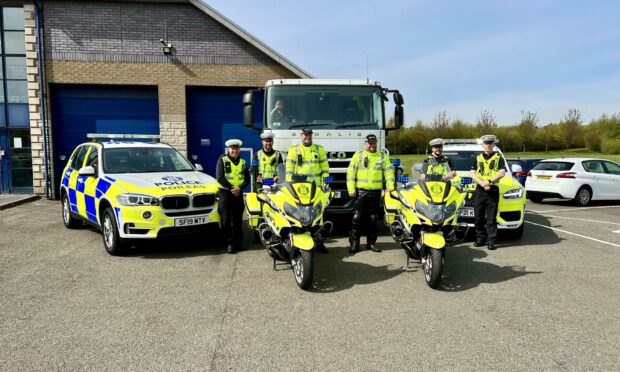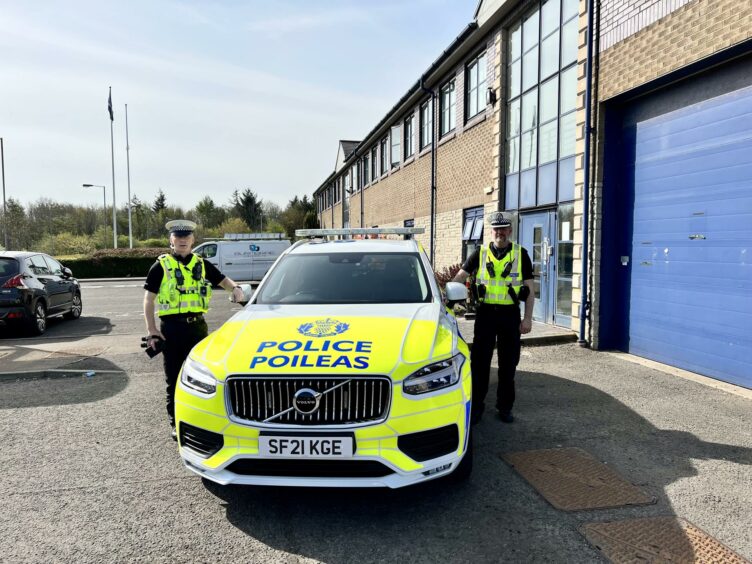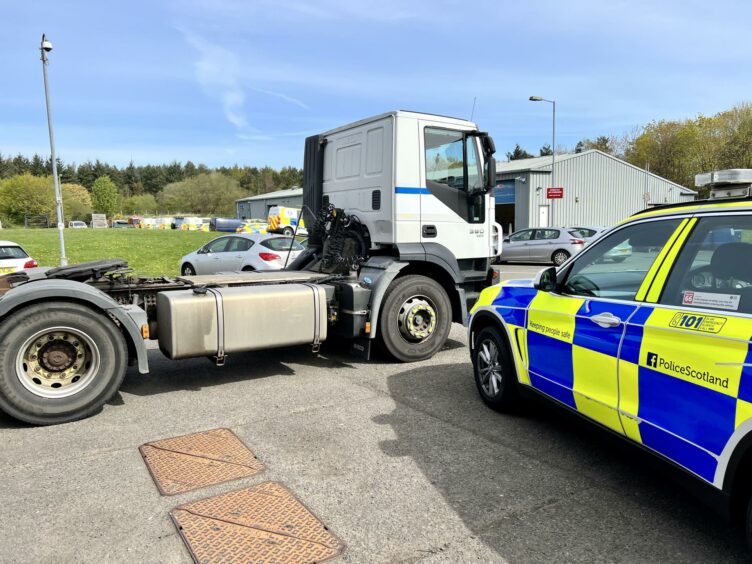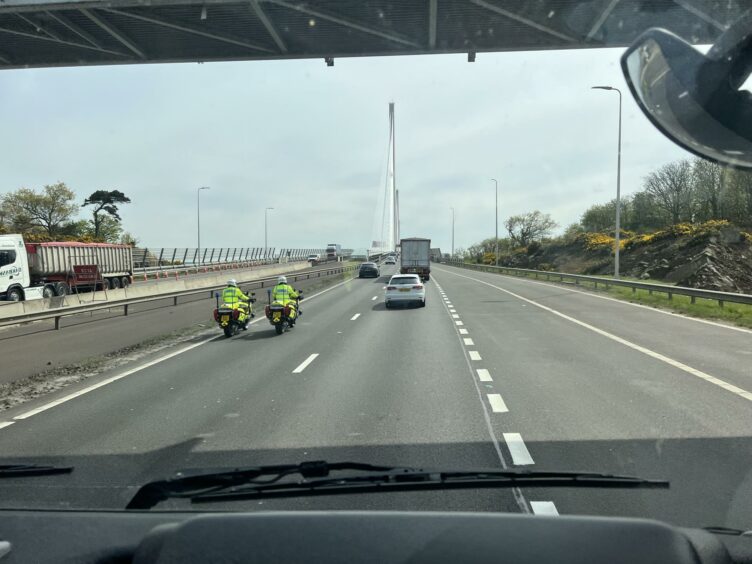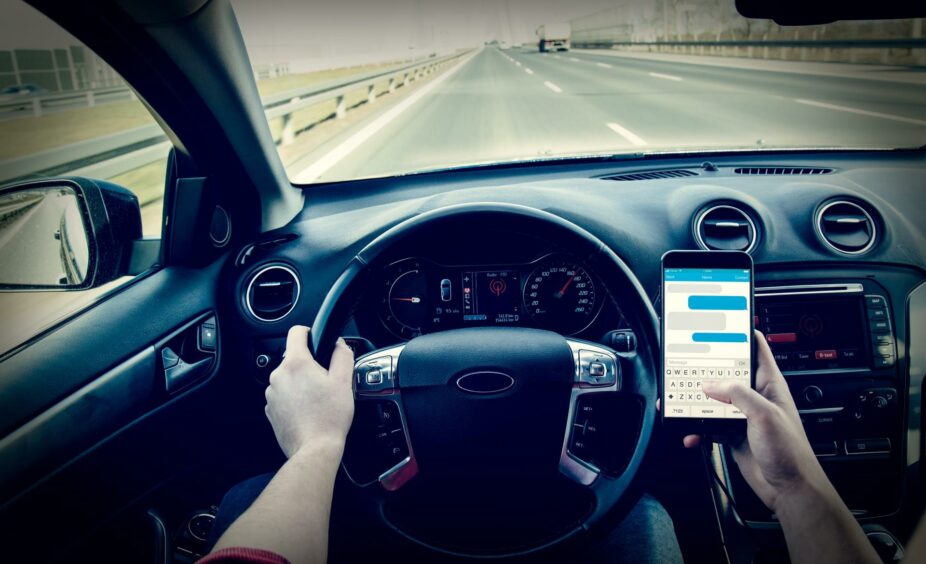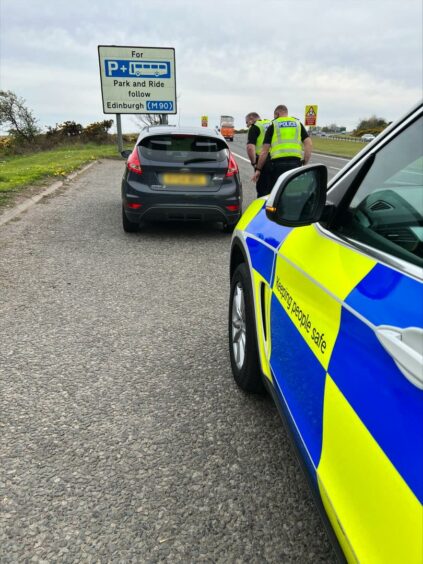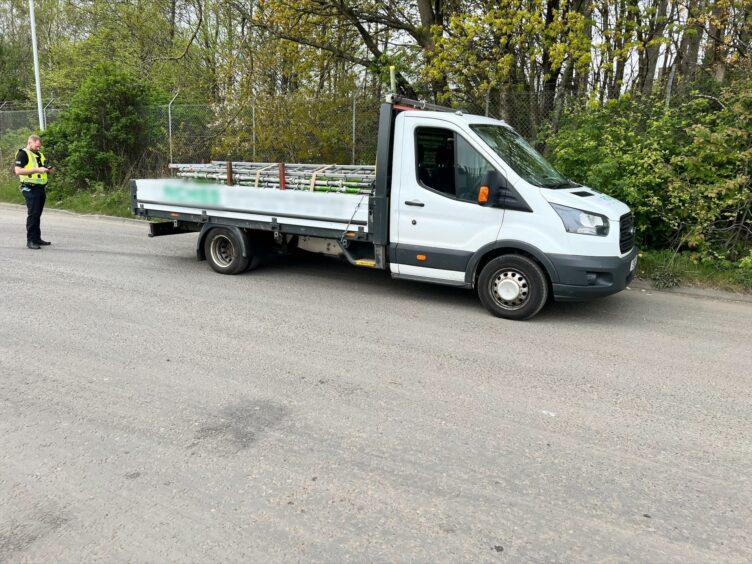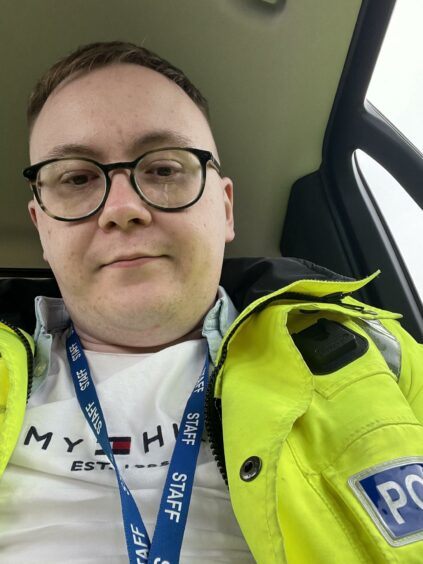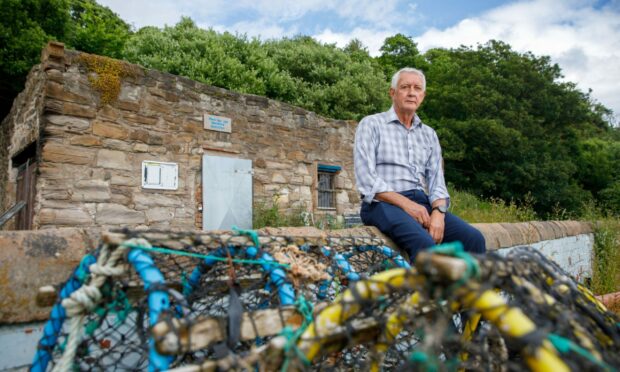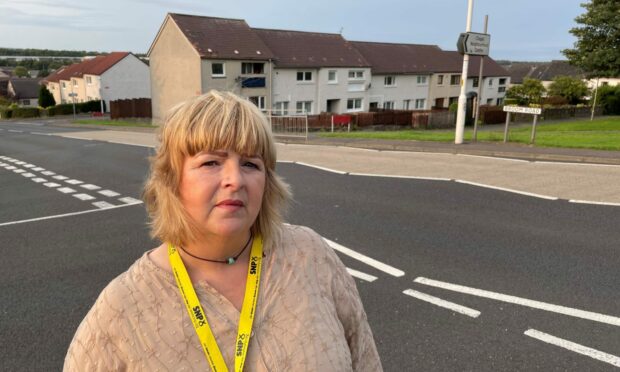Sitting opposite Inspector Darren Cook’s desk is a whiteboard listing every road death in Fife during the last year.
It contains seven names, serving as a reminder for Inspector Cook, who leads the dedicated team of road traffic policing officers in Fife, of his mission to improve road safety.
I’ve been invited to spend the day with the inspector and his team to get a close look at their efforts.
The traffic cops are rolling out a new initiative to Fife which uses a lorry to patrol the roads.
As I arrive at Glenrothes police station, everyone is talking about one of the most bizarre stops the team has ever made.
Before I arrived, officers stopped one female driver heading across the Queensferry Crossing while tucking into a bowl of cereal balanced on her lap.
The hungry motorist would become one of many fined or reported as I got an insight into the work roads policing officers do to keep Fife’s roads safe.
In the lorry the force is deploying as part of ‘Operation Tramline’, I joined veteran traffic cop Sergeant Colin Morrison on the A92.
It isn’t long before motorists using their mobile are identified, including one who is using both hands to hold a device.
The officers quickly note down the vehicle registration before passing its location to their colleagues who are spread out in high-performance cars and motorbikes who will pull the vehicle over and issue a fine.
Driver education key for Fife traffic cops
Sergeant Morrison says the majority drivers accept the fine and immediately own up to their error, but they do have the option not to pay and challenge the decision in court.
As well as issuing fixed penalty notices, the officers work to educate people during traffic stops.
It’s something Sergeant Morrison says they find easy to do after witnessing often tragic collisions which leave officers informing families their loved one won’t return home.
“It’s easy to explain to people why we are giving them a ticket for not wearing a seatbelt or using a device when we go to so many fatal road accidents.
“We see the result of not wearing a seat belt when someone loses their life.”
Each officer in the unit carries a handheld device that allows them to issue fines, take statements and instantly check the police national computer.
On the A92 near Cowdenbeath, Sergeant Morrison is using his device to check the registration plates of vehicles when he notices something odd.
His computer tells him only a male is insured to be behind the wheel, but a woman is driving.
A decision is made to pursue the vehicle and pull it over.
That’s when the officers discover that, as well as having no insurance, the driver is also listed as holding only a provisional licence.
The vehicle is seized and the owner given 14 days to collect it, leaving the occupants, who were returning from a shopping trip, to find another way home.
The woman will also be reported for driving without a licence.
Later in the day I head out with PC Stirling and his partner, PC Russell, who are patrolling to roads until 11pm and following up on intelligence about potential offences.
One of their tasks is responding to a potential sighting of a motorbike stolen from a home in Kirkcaldy the previous day.
After finding the motorbike PC Russell checks the registration plate but quickly realises it is not the one reported stolen.
Back out on the road and within minutes, the duo spot a van they think could be overloaded with scaffolding.
PC Stirling guesses it has a load of around five tonnes, well over the 3.5 tonne limit.
It’s just one of the ways the cost of living crisis is having unexpected effects, with some potentially opting to overload their vehicle to save on fuel from multiple trips.
The driver is pulled over and asked to follow us to a nearby weigh bridge where it comes in at 5.5 tonnes.
The offence will be reported to the court, which will most likely issue a fine.
Despite the number of fines I see the team hand out, back in his office Inspector Cook is keen to do some myth-busting.
“We don’t just go out and hammer people to get lots of money,” he said.
“Our whole aim is reduce the number of people killed or seriously injured.
“Everything we do is targeted to reduce that figure, all of the people here are only interested in keeping people safe.”
He revealed money from fines goes to the government, not the police.
“We don’t get any money or revenue from tickets,” he said.
“We try our best to stop people from doing these things with campaigns, but the reality is some people still go and do it.
“Officers also have discretion about how they deal with offences and look at every incident individually.”
‘It’s not a numbers game’
Sergeant Morrison adds: “It’s not a numbers game, it’s about going out an engaging with people.
“The focus is about how many times we interact, rather than the number of tickets.”
After a busy day, and over 10 motorists stopped for various offences, the team will be back on the road tomorrow to do it all over again.
